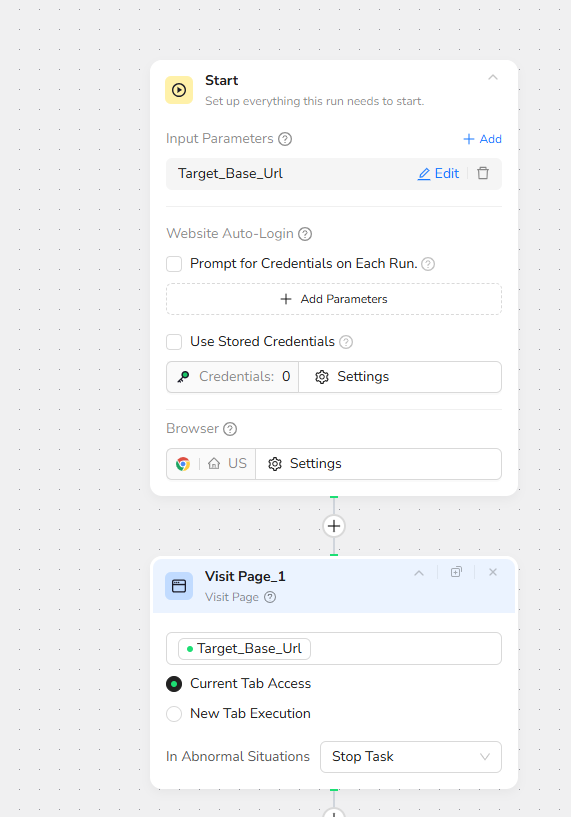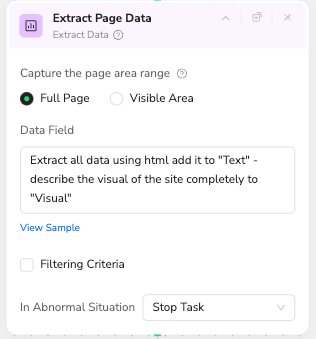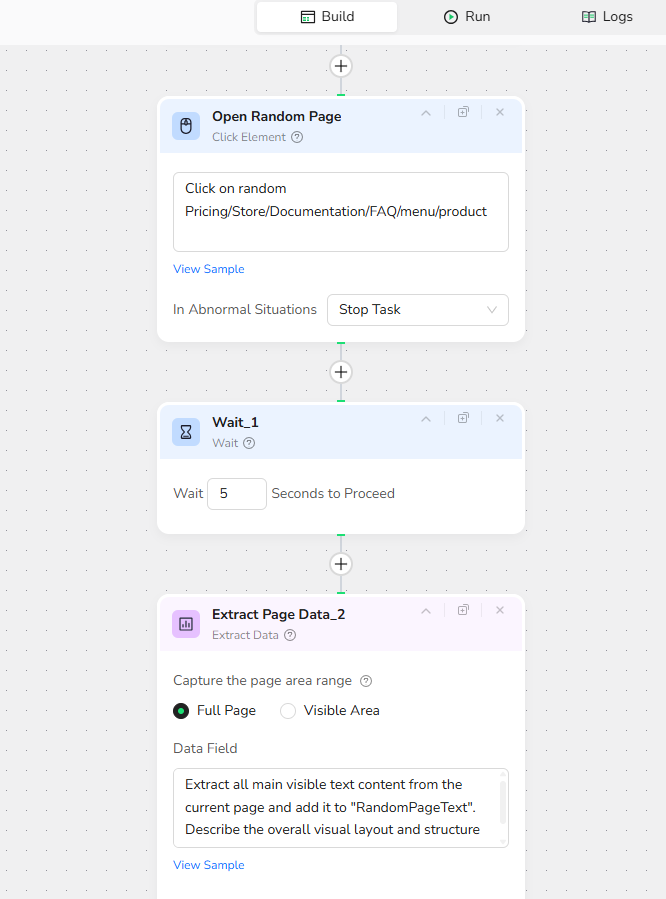
Website Optimization Framework
Brief
🎯 Core Function: Holistic Website Analysis and Actionable Reporting
This workflow creates an automated "Web Consultant" capable of auditing websites for issues across SEO (Search Engine Optimization), UX/UI (User Experience), and Content Strategy. It uses BrowserAct to perform deep content and visual extraction from the main page and a random inner page. It then leverages Gemini AI (acting as an expert analyst) to identify specific problems, inconsistencies, and generate actionable, structured recommendations saved directly to Google Sheets.
Part 1: BrowserAct Workflow Description
This core module performs a targeted, deep scan to capture all necessary raw data for the AI analysis:
Main Page Deep Scan:
The Agent takes a Main Page Link input.
It visits the page and executes a Scroll to End action to ensure all lazy-loaded content, testimonials, and footers are visible and available for capture.

The Agent then performs a comprehensive data extraction, capturing two critical data points:
Text: The raw, semantic text content (for content clarity, redundancy, and SEO structure analysis).

Visual: A detailed description of the page layout, styling, and elements (for UX/UI and Accessibility analysis).
Inner Page Comparison:
The Agent executes a Click on a random link/button to navigate to a secondary inner page.
It performs the same dual extraction (Text and Visual) on this Random Page to check for navigation consistency and design uniformity across the site.
Data Consolidation:
The raw Text and Visual descriptions for both the Main Page and the Random Page are bundled into a structured JSON output for Make.com.

Part 2: Automation Integration with Make.com
The Make.com scenario acts as the analysis engine, turning raw data into strategic intelligence:

Batch Processing Trigger:
The workflow can be triggered by new links added to Google Sheets or run manually with a list of URLs. An Iterator ensures each website is processed individually.
BrowserAct Execution:
The web link is passed to the BrowserAct node to execute the dual-page scraping.
Expert AI Analysis (Gemini):
The raw JSON data (Text and Visual descriptions for both pages) is sent to a specialized Gemini AI node, which is prompted to act as an SEO/UX/Content expert.
The AI meticulously cross-references the data, looking for issues like vague CTAs, inconsistent layouts, content redundancy, and accessibility problems.
Output Structure: The AI's response is a strict JSON object containing an array of findings, where each finding includes a concise problem description and a clear, actionable recommendation to fix it.
Structured Reporting:
The analysis results are immediately written back to Google Sheets (or another database), providing a structured, easy-to-filter audit report ready for a development team or content strategist.

✨ Applicable Scenarios (Use Cases)
SEO Agency Audits: Quickly generate initial audit reports for new clients, focusing on immediate SEO and content quick-wins.
Competitor Benchmarking: Analyze competitor websites to identify their content gaps, poor CTAs, or confusing navigation that you can exploit.
Internal QA/Dev Testing: Run the workflow during development or migration to automatically flag inconsistencies in styling or layout between the main page and new sub-pages.
Content Strategy Planning: Identify repetitive content or vague headlines, providing a roadmap for content team updates based on objective AI assessment.
